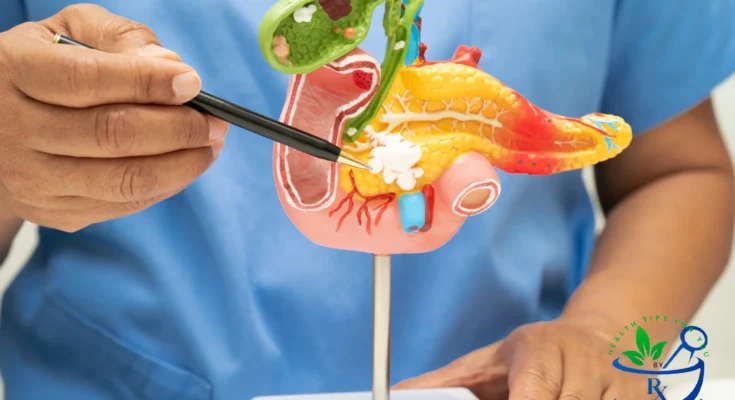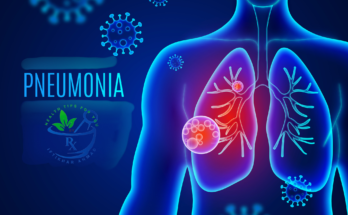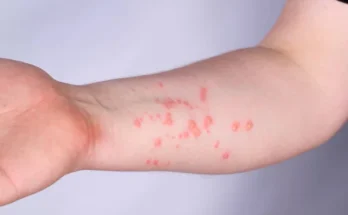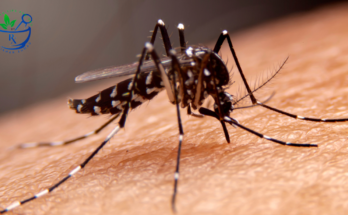Pancreatic cancer is quite possibly the most difficult form of cancer to diagnose and treat. But, knowing the symptoms, risk factors, and the preventive measures on the disease can help one to control on their own. In this article therefore, the reader will come across the causes of pancreatic cancer, the available treatment procedures and procedures that can be taken, and all this while encouraging a fun filled healthy lifestyle.
What is Pancreatic Cancer?
Pancreatic cancer starts in the tissues of the pancreas, which is an important organ situated behind the stomach. The pancreas has a major role to play in digestion and blood glucose control. In case tumors develop in the pancreas, these important functions may be interfered with.
The most frequent type of pancreatic cancer is pancreatic ductal adenocarcinoma. It starts in the cells forming the ducts of the pancreas. It is not easy to diagnose in early stage, therefore, it is important to recognize the symptoms and factors that predispose an individual.
Signs of Pancreatic Cancer:
Like many other deadly diseases, pancreatic cancer is asymptotic and is usually diagnosed in its later stages. However, some warning signs include:
- Chronic pain located in the abdominal area that may extend to the back
- Unexplained weight loss
- Loss of appetite
- Jaundice (Icterus, yellow color of the skin and sclerae).
- Fatigue
- Gastro intestinal problems such as nausea and alteration of bowel habits
These above indicated symptoms must be treated by a healthcare provider at the earliest opportunity.
Risk Factors for Pancreatic Cancer
Knowledge of risks is in a position to enable people to shift towards better habits. Some common risk factors include:
- Smoking: Tobacco smoking forms part of the common risk factors.
- Obesity: Overweight elicits inflammation and increases insulin resistance and thus raises the risk.
- Diabetes: In particular, type 2 diabetes was revealed to be associated with a higher probability of developing pancreatic cancer if the disease has been diagnosed for a long time.
- Family History: You are at a greater risk if you are born with certain genes.
- Chronic Pancreatitis: Pancreatic inflammation is known to cause cancer if the inflammation continues for long time.
- Dietary choices like consuming processed meat, red meat, and sugary beverages likely increase the risk.
Treatment available for pancreatic cancer
Pancreatic cancer has several forms of treatment, and modern medicine provides several treatments according to the stage of the disease.
Surgery
Doctors consider complete surgical resection of the tumor the best treatment if they diagnose the disease in its initial stage. Surgeries like the ‘Whipple procedure’ involve removing the affected part of the pancreas along with some adjacent organs.
Chemotherapy
Most importantly, chemotherapy involves the use of medications which have toxic effects to the cancer cells so that they die, or their rates of division decrease. “Doctors mostly use chemotherapy agents like ‘gemcitabine’ or ‘FOLFIRINOX.'”
Radiation Therapy
This treatment involves focusing high energy rays on cancer cells. Doctors usually use it together with chemotherapy to enhance treatment results.
Targeted Therapy
Targeted therapies work only on the genetic changes that are present in the cancer cells. “Drugs like ‘olaparib’ for BRCA-mutated cancers are examples of this new way of thinking.”
Immunotherapy
Immunotherapy uses the body’s immune system to help it fight cancer. Researchers are conducting clinical trials, but they have not yet established it as a protocol for pancreatic cancer treatment.
Measures to Avoid Pancreatic Cancer
While it is impossible to avoid all of them, leading a healthy lifestyle can help lower your chances of getting any of them.
Quit Smoking
Experts consider tobacco use one of the most modifiable causes of oral and pharyngeal cancer. Smokers can reduce their chances and enhance their wellness by stopping the habit.
Maintain a Healthy Weight
The diseases associated with obesity increase the general risk of cancer. Weight control is achievable through exercise and balanced diet comprised of whole food products.
Eat a Nutrient-Dense Diet
Focus on foods high in antioxidants and anti-inflammatory properties, such as:
- Raw food as a whole like berries and oranges
- Spinach and Kale and other related green vegetables.
- Nuts and seeds, and whole grain products.
- Olive oil and avocados as the good fats
Limit Alcohol Consumption**
Consuming alcohol to a toxic level is dangerous, as it may cause chronic pancreatitis, which is linked to pancreatic cancer. So quit it.
Control Diabetes and Blood Glucose
Regulate blood sugar through diet, exercise, and with medicine if it’s necessary. It also brings out the fact that routine examination can sometimes detect such problems early enough.
Stay Physically Active
Participate in moderate intensity physical activities for not less than 150 minutes within the week. Products like walking, swimming or even doing yoga may enhance general health.
Early Detection of Pancreatic Cancer
Annual checkups for people with family history of pancreatic cancer can help prevent deaths. Investigational tools for diagnosing the diseases includes the CT scans, MRI, and endoscopic ultrasounds.
Experts advise genetic counseling to anyone with a hereditary predisposition. If detected in its early stage, then it becomes very easy to treat the condition.
Holistic Health Models
Complementary therapies can add value to conventional medicine and improve the quality of a patient’s life. Consider incorporating:
- Stress Management: It lowers stress by practicing techniques such as meditation, deep breathing, and mindfulness.
- Herbal Support: Research studies have found that some nutrients, such as turmeric (curcumins), green tea and other ingredients, possess anti-cancer compounds. One should seek advice from a doctor before taking herbal medicine.
- Adequate Sleep: Aim at quality sleep so that your immune system and body are strong in the event of a breakout.
Conclusion: Prevention is the Key to a Healthy Life
“You can minimize the risk of pancreatic cancer by paying attention to how you live your life.” Nutritionally balanced diet, exercise and abstaining from risky practices as smoking help open the door to healthy and disease-free life.
In our capacity as health care workers we encourage behavior modification through education in order to prevent. Just a word, the sayings you do in your daily life can greatly improve your health and wellbeing. Focus on your health today; it will pay you later in the future!





